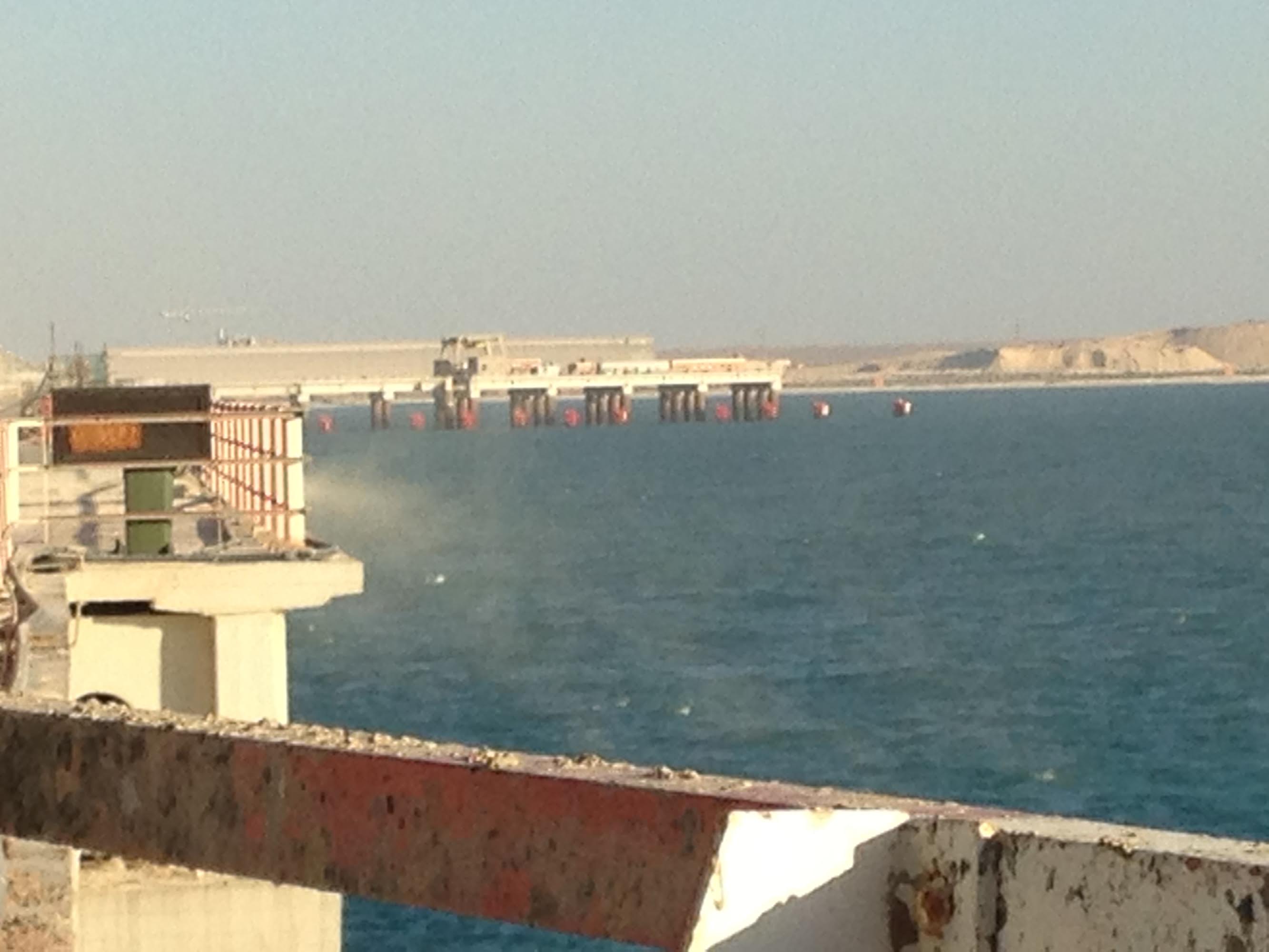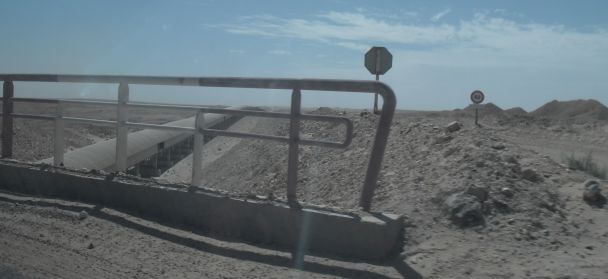
The German industrial engineering giant is unclear whether it will steer away from future projects in occupied Western Sahara.
Western Sahara Resource Watch (WSRW) has asked thyssenkrupp at its Annual General Meeting on 5 February 2021 and in subsequent letters to clarify and elaborate on its previous and future involvement in Western Sahara.
While forthcoming on past activities in the territory, thyssenkrupp does not respond as to whether it will refrain, as a matter of policy, from becoming involved again. WSRW's latest letter, of 7 March 2021, has to date not been answered. The company’s approach seems to be that “there were no embargoes or other export restrictions on the EU for deliveries to the Western Sahara region at the time and there are still none.”
“It is concerning that a company that purports to take its human rights responsibility very seriously, will not formally distance itself from undertaking business activities in a territory that it subject to an illegal occupation, and where the occupying power squashes any call for self-determination with grave human rights violations”, says Tim Sauer from WSRW.
“Just two weeks ago, Freedom House's published its 2021 annual report on the status of civil and political rights in the world, ranking Western Sahara alongside Syria and North Korea. It should be easy for a company to state that they will not engage in such a territory until the situation has been resolved in line with international law. We call on thyssenkrupp to do so", Sauer stated.

Thyssenkrupp is at present not carrying out any projects in the last colony in Africa and states that it doesn’t have any lined up. But the company has before been connected to several projects in the occupied territory.
In 2016, thyssenkrupp took over a contract for construction work at the CIMSUD/HeidelbergCement cement factory in El Aaiun, the capital city of occupied Western Sahara. Today, thyssenkrupp shifts all responsibility for the project onto its private customer (Groupe Anouar Invest). Thyssenkrupp did explain at its AGM that it had designed and supplied a cement mill and a packaging plant, commissioned in 2019, but added that “the construction of the plant was the responsibility of the customer”.
In 2019, the Research services of the German Bundestag concluded that Morocco is carrying out a settlement policy in Western Sahara, substantiating a violation of the Geneva Convention and, as such, a war crime. Construction work is a crucial element of such a settlement policy. When questioned in this respect, thyssenkrupp retorted “this is also a matter that concerns the owner of the plant.”
The company has also supplied the Bou Craa phosphate mine in the territory that is illegally exploited by Morocco’s national phosphate company OCP. As communicated to WSRW on 22 February 2021, “thyssenkrupp Mining Technologies has refurbished three stackers and two reclaimers on the phosphate stockyard of the Bou Craa site, which involved an inspection and the engineering, supply and construction of components to be replaced to extend the operational lifetime of the machines.” The company added that there are no further activities and ongoing projects regarding the Bou Craa site.
Read WSRW's transcript (translated to English) of the answers given by thyssenkrupp's Executive Board at the company's AGM of 5 February 2021, to questions of the Dachverband der kritischen Aktionärinnen und Aktionäre in relation to the company's involvement in Western Sahara.
WSRW urges shareholders to challenge Continental
Continental’s controversial contract in occupied Western Sahara is two weeks away from expiration. If renewed, WSRW asks owners to raise the matter at upcoming AGM.
What is Continental negotiating with OCP?
As Continental renegotiates its contract with Morocco's national phosphate company, it is still not clear whether the German group intends to limit its operations to Morocco proper or extend them into occupied Western Sahara.
German organisations condemn Continental's conflict conveyor
The multinational company that facilitates the controversial phosphate exports in Western Sahara receives criticism from a group of German organisations.
Continental negotiating contract renewal with OCP
The contract of German engineering company Continental that covers maintenance work on the phosphate conveyor belt in occupied Western Sahara expires in five months.


